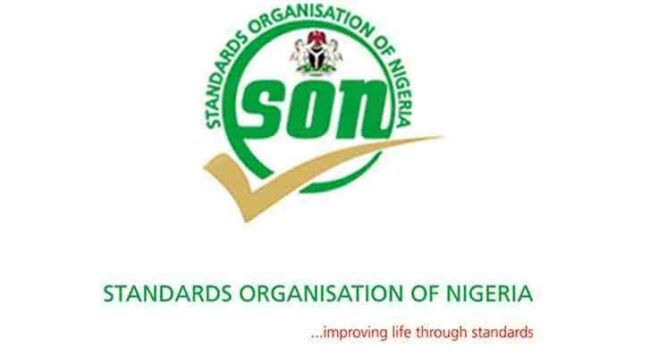The Standards Organisation of Nigeria (SON) has revealed that in a bid to reduce the incidents of building collapse in the country, the organisation has produced 168 standards and codes of practice for the building and construction industry since 2004 for contractors to implement during construction.
The Director General, Dr Ifeanyi Chukwunonso Okeke, lamented the frequent spate of building collapses across the country, resulting in the wanton destruction of lives and properties.
He stated that compliance with Specifications and Codes of Practice in the Standards by regulators and service providers in the sector plays an important role in reinstating the eroding confidence of Nigerians in the Nigerian building industry.
Okeke explained that following investigations carried out by the SON, the cause of the incessant building collapse was attributed to poor structural designs, quackery and unprofessionalism, and inadequate or lack of soil testing.
According to a statement by Mrs Foluso A. Bolaji, “Other causes include poor construction practices and procedures, unapproved construction, the wrong demolition process, a lack of maintenance, negligence, the use of substandard materials (steel reinforcement bars), as well as poor drainage around the collapsed buildings.
SON therefore reiterated the need for a comprehensive approach to building collapses in Nigeria to prevent repeated incidents from occurring in the future and to ensure the safety and integrity of structures across the nation.
Okeke outlined the Standards to include: Nigerian Industrial Standard (NIS) 117: 2004 Specification for Steel Bars for the Reinforcement of Concrete, Nigerian Industrial Standard (NIS) 499: 2004 Standard for Iron and Steel, Nigerian Industrial Standard (NIS) 588: 2007 Testing Hardened Concrete Part 1: Method for Determination of the Compressive Strength of Concrete Cores, Nigerian Industrial Standard (NIS) 585: 2007 Standard for Concrete Admixtures, Part 1: Specification for Accelerating Admixtures, Retarding Admixtures and Water-Reducing Admixtures, Nigerian Industrial Standard (NIS) 156:1982 Standard Method for Testing Fresh Concrete; and Nigerian Industrial Standard (NIS) ISO 41001:2020 Facility Management System Standard, amongst others.
He assured the public that the responsibility of attaining a safe environment through standardisation and quality assurance is unending, noting the organisation’s resolve to continue to collaborate with other sector regulators, including the Council for the Regulation of Engineering in Nigeria (COREN), the Nigeria Building and Road Research Institute (NBRRI), the Nigerian Institute of Quantity Surveyors (NIQS), the Raw Materials Research and Development Council (RMRDC), the Ministry of Works, and other development agencies at both the state and federal levels.
ALSO READ THESE TOP STORIES FROM NIGERIAN TRIBUNE
